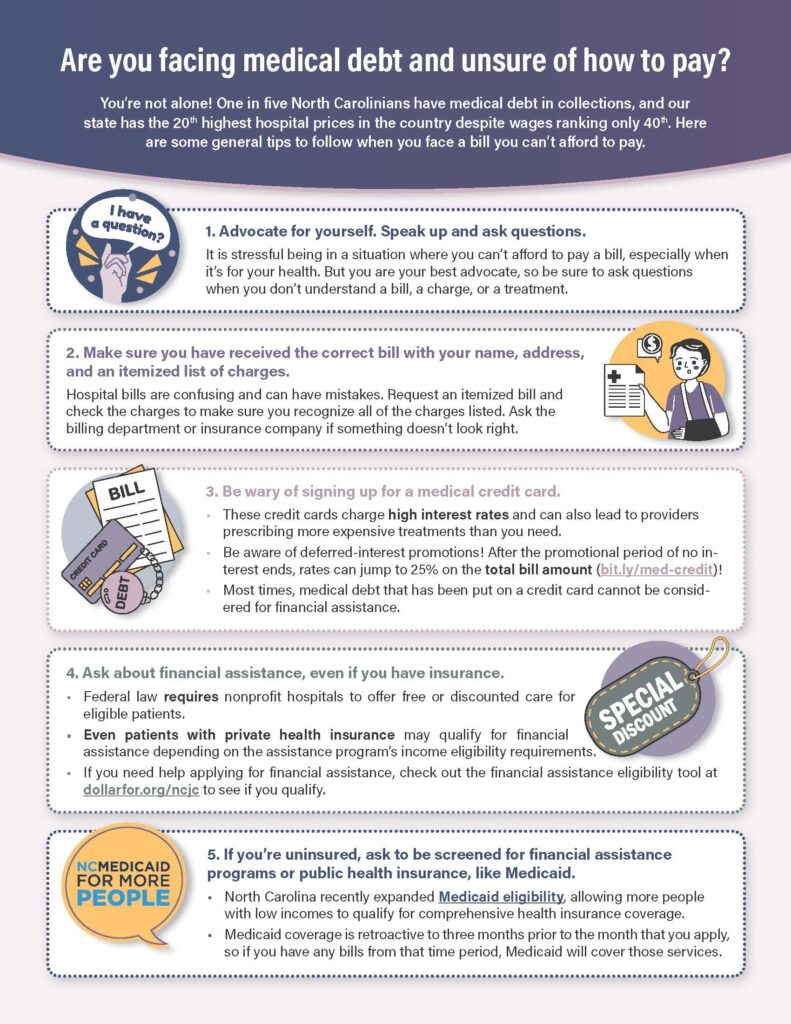5 Common Mistakes People Make in Public Assistance Applications
Imagine how frustrating it would be to delay your benefits because of avoidable errors. We’ve all been there, trying to fill out forms and decipher complex instructions. It’s easy to miss a step or misinterpret a requirement. But don’t worry—you’re not alone, and there’s a way to streamline the process.
You’ll discover the five most common mistakes people make when applying for public assistance and, more importantly, how to avoid them. By understanding these pitfalls, you can save time, reduce stress, and increase your chances of a successful application. Ready to make your application process smoother and more efficient? Let’s dive in and ensure you’re on the right path to getting the support you need.
Lack Of Research
Public assistance can be a lifeline for many individuals and families. Yet, navigating the application process can be daunting. Many make mistakes that hinder their chances of receiving the help they need. One of the most common errors is a lack of research. Understanding the programs and their requirements is crucial. Without proper research, applicants may miss out on benefits they qualify for or face unnecessary delays. Let’s explore how this oversight can impact your application process.
Lack Of Understanding Of Available Programs
Many applicants are unaware of the different programs available. Each program has specific eligibility criteria and benefits. Failing to research can lead to missed opportunities. For example, some programs offer help with utilities, while others focus on food assistance. Knowing the options helps you apply for the right program.
Failure To Gather Necessary Documents
Another common mistake is not preparing the required documentation. Each assistance program has unique document requirements. Without proper research, applicants may submit incomplete applications. This oversight can cause delays or denials. Always check the program’s website or contact their office for a list of necessary documents.
Overlooking Application Deadlines
Application deadlines are critical. Many people miss out on assistance due to late submissions. Every public assistance program has specific timelines. Failure to research these deadlines can result in missed benefits. Mark important dates on your calendar and aim to submit early.
Ignoring Program Changes
Public assistance programs often undergo changes. These can include eligibility criteria or benefit amounts. Applicants who do not stay informed may apply based on outdated information. Regularly check official sources for updates to ensure you meet current requirements.
Not Seeking Help When Needed
Many applicants hesitate to ask for help. Lack of research can lead to confusion and mistakes. Community organizations and social workers can offer valuable guidance. Don’t be afraid to reach out for assistance in understanding the process and requirements.
Incomplete Applications
Applying for public assistance can be a daunting process. Many people need help to get through it smoothly. One common mistake is submitting incomplete applications. This can delay or even deny the help you need. Understanding how to avoid this mistake is crucial. Let’s dive into the specifics of incomplete applications and how to tackle them.
What Makes An Application Incomplete?
Many applicants miss filling out all required fields. This often happens due to oversight or misunderstanding. Each section of the application needs attention. Missing documents can also make your application incomplete. Many programs require proof of income or residency. Ensure you provide all necessary documents.
Consequences Of Incomplete Applications
- Delays: Incomplete applications lead to processing delays. This means waiting longer for assistance.
- Denial: Some programs may deny incomplete applications outright. This forces you to start over.
- Additional Burden: You may need to resubmit documents or information. This creates extra work for both you and the processing staff.
How To Ensure Your Application Is Complete
- Read instructions carefully. Understand what is required before starting.
- Gather all necessary documents beforehand. This includes income statements and proof of residence.
- Double-check each section before submission. Ensure no fields are left blank.
- Use a checklist. Verify all documents and information are attached.
Tips For Avoiding Incomplete Applications
Avoid rushing through the application process. Take your time to complete each part thoroughly. Seeking help from a professional can be beneficial. Many organizations offer free assistance to applicants. They can guide you through each step.
Resources For Assistance
| Resource | Contact Information |
|---|---|
| Local Social Services Office | Visit your local office for in-person help. |
| Non-Profit Organizations | Contact local non-profits for guidance and support. |
Missing Deadlines
Applying for public assistance can be a daunting task. Many people find the process overwhelming and confusing. One common mistake that applicants make is missing deadlines. This can lead to delays in receiving benefits or even disqualification from assistance programs. Understanding and adhering to deadlines is crucial for a smooth application process.
Understanding The Importance Of Deadlines
Deadlines are set to ensure that applications are processed timely. They help maintain order and efficiency in handling numerous requests. Missing a deadline can result in missed opportunities. It can also create a backlog, which further delays your application.
Common Reasons For Missing Deadlines
- Lack of awareness: Many applicants do not realize the importance of deadlines.
- Poor time management: Failing to plan and allocate time for application tasks.
- Document preparation delays: Gathering necessary documents at the last minute.
- Miscommunication: Incorrect or incomplete information from program offices.
Impact Of Missing Deadlines
Missing deadlines can have significant repercussions. It may lead to loss of eligibility for certain benefits. Applicants might face a longer wait before receiving assistance. Additionally, repeated delays can cause frustration and anxiety.
Strategies To Avoid Missing Deadlines
- Set reminders: Use calendar alerts or phone notifications.
- Create a checklist: List all required documents and tasks.
- Gather documents early: Start collecting documents as soon as possible.
- Seek clarification: Contact program offices if unsure about deadlines.
Helpful Resources
| Resource | Description |
|---|---|
| Local Assistance Office | Provides guidance and deadline information. |
| Online Forums | Community support and shared experiences. |
| Government Websites | Official deadlines and application guidelines. |

Credit: www.ncjustice.org
Ignoring Eligibility Requirements
Applying for public assistance is often a crucial step for many individuals and families. It provides much-needed support during challenging times. Yet, navigating the application process can be daunting. One frequent mistake is ignoring eligibility requirements. This oversight can lead to delays or denials. Understanding and meeting these requirements is key. By being informed, applicants can avoid unnecessary stress and secure the help they need.
Eligibility criteria ensure that public assistance reaches those who truly need it. These requirements vary based on the type of aid and location. It’s vital to review these criteria before applying. Here’s why:
- Avoids Wasted Effort: Applying without meeting criteria wastes time.
- Prevents Delays: Incomplete applications often require resubmission.
- Increases Approval Chances: Meeting requirements boosts approval odds.
Understanding Income Limits
Income limits are a common eligibility requirement. They determine if an applicant qualifies based on their earnings. Many programs use income as a primary factor. Here’s how to manage it:
| Program | Income Limit |
|---|---|
| Supplemental Nutrition Assistance Program (SNAP) | 130% of federal poverty level |
| Medicaid | 138% of federal poverty level |
Applicants should compare their income to these limits. If unsure, seeking guidance from program officials is wise.
Providing Accurate Documentation
Documentation is crucial in proving eligibility. This includes income proof, residency, and family size. Missing or incorrect documents can halt the process. To ensure everything is in order, prepare a checklist:
- Gather recent pay stubs or tax returns.
- Have a valid ID and proof of residence.
- Include documents for all household members.
Double-check each document for accuracy. This step saves time and reduces errors.
Failure To Provide Documentation
Applying for public assistance can be a daunting task, especially when required to provide accurate documentation. Many individuals find themselves overwhelmed, leading to mistakes that can delay or even prevent approval. One of the most common errors in this process is the failure to provide necessary documentation. Missing or incomplete records can cause significant setbacks. Understanding the importance of documentation is crucial for a successful application.
Understanding Required Documents
Before starting an application, it is vital to know what documents are required. Each type of assistance may have different requirements. Commonly needed documents include:
- Proof of identity, such as a driver’s license or passport.
- Income statements, including pay stubs or tax returns.
- Residential proof, like utility bills or lease agreements.
- Medical records, if applying for health-related assistance.
Having a checklist of required documents can help avoid any oversight.
Importance Of Timeliness
Submitting documents on time is crucial. Late submissions can lead to application rejection or delays. Gather all necessary documents before starting the application process. This ensures you can submit everything promptly.
Accuracy And Completeness
Ensure all documents are complete and accurate. Double-check for any missing information. Incorrect data can lead to denial of assistance. Use a table to keep track of document details:
| Document | Status | Notes |
|---|---|---|
| Identity Proof | Complete | Passport copy attached |
| Income Statement | Pending | Need last month’s pay stub |
Seeking Help When Needed
Don’t hesitate to seek help if confused about documentation. Many organizations offer assistance in understanding document requirements. Community centers and online resources can provide guidance. Asking for help can prevent costly mistakes.
Using Technology For Organization
Utilize digital tools to organize documents. Scanning and saving files on your computer can make retrieval easier. Online applications often allow document uploads, simplifying the process. Technology can help keep everything in one place.
Frequently Asked Questions
What If I Made A Mistake On My Medicaid Application?
Correct your Medicaid application mistake by contacting your local Medicaid office immediately. Provide necessary documentation to support the correction. You can also update your application online through your state’s Medicaid portal. Timely corrections ensure accurate processing and eligibility determination. Always double-check information before submitting to avoid future issues.
Why Is Public Assistance Important?
Public assistance helps individuals meet basic needs like food, shelter, and healthcare. It reduces poverty and supports economic stability. Providing aid to those in need fosters a more equitable society. Public assistance also helps boost local economies by increasing consumer spending on essential goods and services.
What Are Common Errors In Public Assistance Applications?
Common errors include incomplete forms, missing documents, and incorrect information. Ensure all sections are filled and double-check entries. Provide required documentation to support your application. This prevents delays and rejections, helping you receive assistance faster.
How Can I Avoid Delays In Approval?
Avoid delays by submitting a complete application with all required documents. Double-check your information for accuracy. Contact the assistance office for clarity on any requirements. This helps prevent processing setbacks and ensures quicker approval of your application.
Conclusion
Avoiding these common mistakes can ease your application process. Every detail matters. Ensure all information is accurate and complete. This reduces delays and increases approval chances. Remember, assistance programs are there to help. Use them wisely. Double-check your paperwork for errors.
Ask questions if something is unclear. Take your time to understand requirements. Seek help from community resources if needed. Persistence and preparation pay off. Stay informed and be patient. With careful attention, you’ll navigate the process successfully. You’re not alone; many have walked this path before.
Keep these tips in mind and move forward confidently.
Read Also:



